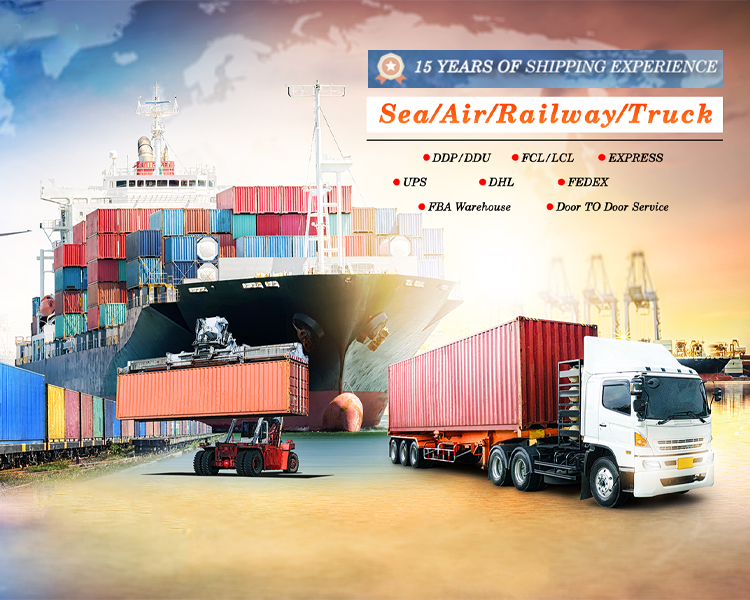sales@flying-trans.com
+86-15818568920
- All
- Product Name
- Product Keyword
- Product Model
- Product Summary
- Product Description
- Multi Field Search
Views: 0 Author: Site Editor Publish Time: 2025-09-02 Origin: Site











In the fast-paced world of international trade, logistics companies are under constant pressure to deliver goods more efficiently, transparently, and securely. Shenzhen Flying International Freight Forwarder Co., Ltd., known in the industry as Flying International, is at the forefront of this revolution, leveraging state-of-the-art tracking technology to redefine global supply chain management. This article explores how tracking is transforming international logistics, while also touching on the importance of customs clearance and warehouse management in ensuring seamless freight forwarding operations.
Traditionally, the movement of goods across borders has been fraught with uncertainties—delays, misplaced shipments, and lack of real-time updates have long plagued importers and exporters alike. Today, tracking technology is changing the game. By providing real-time visibility into every stage of the shipping process, companies like Flying International are empowering clients with up-to-the-minute information on their cargo's location, status, and estimated arrival times.
Real-Time Visibility: Customers can monitor their shipments from origin to destination, reducing anxiety and improving planning.
Proactive Problem Solving: If a delay or issue arises, logistics teams can act quickly to reroute or resolve problems, minimizing disruptions.
Enhanced Communication: Transparent updates foster trust between logistics providers and their clients.
With these benefits, it’s no wonder that digital tracking is now considered a must-have feature in international logistics services.

south African line
Air Shipping forwarding enterprise
Railway Shipping forwarding enterprise
North America line
Flying International has invested heavily in cutting-edge tracking platforms, integrating GPS, RFID, and IoT sensors into their logistics network. This allows both the company and its clients to access a centralized dashboard where all shipments can be monitored in real time. By automating data collection and reporting, Flying International has significantly improved operational efficiency, reduced manual errors, and enhanced overall customer satisfaction.
Moreover, the company’s tracking solutions are designed to be user-friendly, offering clients easy access via web and mobile applications. This transparency is especially valuable for businesses managing complex supply chains or handling high-value or time-sensitive goods.
The logistics industry is undergoing a digital transformation, with tracking technology at its core. According to recent industry reports, over 70% of international freight forwarders have implemented some form of digital tracking, and the trend is accelerating. Integrating artificial intelligence and big data analytics further enhances the predictive capabilities of tracking systems, enabling logistics providers to anticipate and mitigate risks before they impact delivery schedules.
Increased Adoption of IoT: Smart sensors and devices are providing granular insights into shipment conditions, such as temperature and humidity, which is crucial for sensitive cargo.
Blockchain for Transparency: Some forwarders are experimenting with blockchain to create immutable records of shipment movements, enhancing security and trust.
Sustainability Benefits: Better tracking leads to optimized routes and reduced fuel consumption, supporting greener logistics practices.
These advancements are not only improving efficiency but also helping companies meet stricter regulatory and environmental standards.
While tracking technology is a game-changer, it must be integrated with other core logistics services to deliver maximum value. Customs clearance remains a significant hurdle in international shipping, often causing unexpected delays. Flying International’s tracking systems are linked with customs documentation, alerting clients to any issues or required actions in real time. This proactive approach streamlines the clearance process, reducing the risk of penalties or shipment holds.
Similarly, warehouse management is essential for efficient international logistics. Flying International employs advanced warehouse management systems (WMS) that synchronize with their tracking platforms. This integration ensures that inventory is accurately managed, orders are fulfilled promptly, and shipments are dispatched without unnecessary delays. Real-time data from both tracking and warehouse systems allows for predictive inventory planning, reducing storage costs and preventing stockouts.
One of Flying International’s major clients, a global electronics manufacturer, faced challenges with shipment visibility and customs delays. By leveraging Flying International’s tracking solutions, the client gained comprehensive real-time updates on all shipments, including customs status and warehouse inventory levels. As a result, the client was able to streamline their supply chain, reduce lead times by 15%, and improve on-time delivery rates by 20%.
The integration of advanced tracking technology, customs clearance, and warehouse management is setting new standards for international freight forwarding. As digitalization continues to reshape the industry, companies like Flying International are leading the way by offering smarter, more transparent, and more reliable logistics solutions. The future promises even greater connectivity, with AI-driven analytics, autonomous vehicles, and blockchain-powered documentation further transforming the landscape.
For businesses seeking to stay competitive in global markets, partnering with a forward-thinking logistics provider like Shenzhen Flying International Freight Forwarder Co., Ltd. ensures that their supply chains remain agile, efficient, and fully visible at every stage.
Tracking technology is revolutionizing international logistics by providing real-time visibility and proactive problem-solving.
Flying International leads the industry with integrated tracking, customs clearance, and warehouse management solutions.
Digitalization and industry trends are driving greater efficiency, transparency, and sustainability in global supply chains.